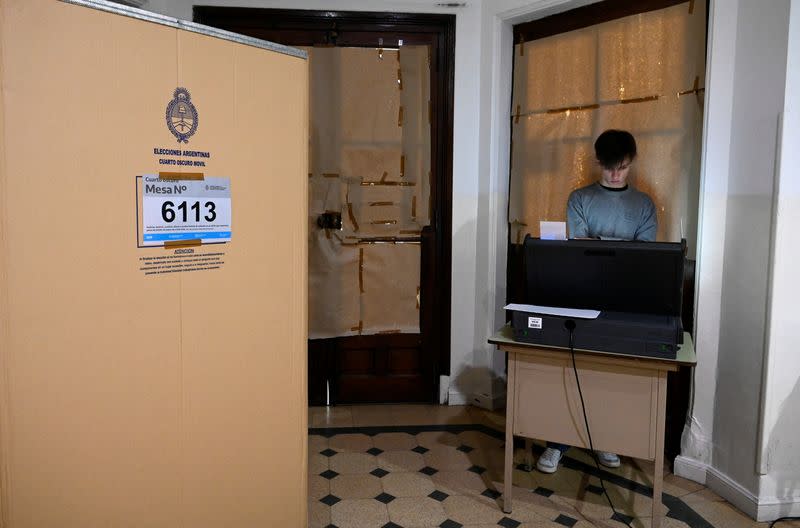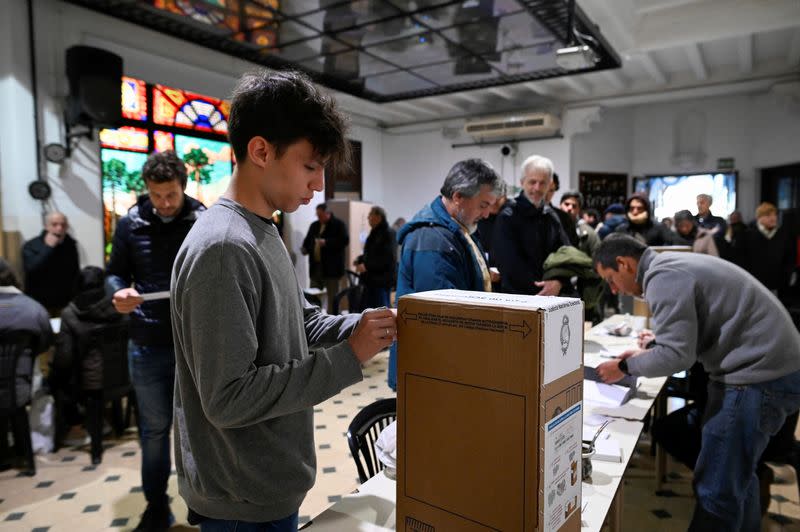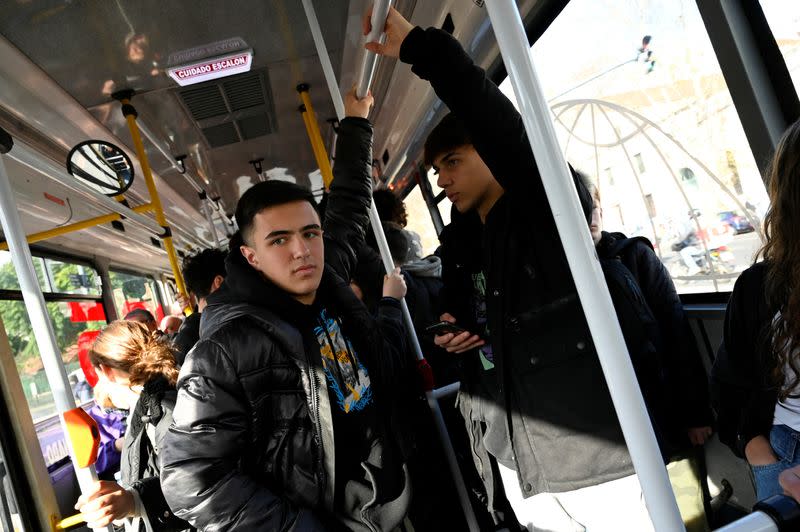Argentina's young electorate faces a one-in-a-generation vote
- Oops!Something went wrong.Please try again later.
By Magali Druscovich and Lucila Sigal
BUENOS AIRES (Reuters) - Argentine teenager Tomas Kremenchuzky is getting ready to vote in his first ever presidential election on Oct. 22, the most open and uncertain race in his lifetime, where the frontrunner candidate is threatening to upend the country's economic model.
Argentina is one of a handful of Latin American countries that allows 16 and 17-year-olds the right to vote. Kremenchuzky, nicknamed "Toto," 17, is part of that teenage electorate.
Many young Argentines are struggling to find opportunities in a country where a cost-of-living crisis and triple-digit inflation has compounded investor wariness after years of political and economic volatility.
That has been a big factor in the popularity of the presidential frontrunner - wild-haired and brash political outsider, Javier Milei, who wears leather jackets, sings rock songs to his fans, berates "thieving" politicians and wants to "burn down" the central bank.
"Because of the way Milei speaks, I buy everything he says. He's got a way of expressing himself that reaches people," said Toto, who comes from a well-off family, plays soccer and goes to a private school in Buenos Aires.
In an August open primary vote, Toto voted for conservative Patricia Bullrich - which he puts down to influence from his parents - but says he could shift his vote in October to Milei if the libertarian convinces him in election debates.
"Milei proposes something different, which later in practice may turn out to very good - or very bad," Toto said.
However, Milei's conservative social views and promise of sharp cuts to government spending are off-putting to some young voters.
Rocio Pozzetti, 16, who attends a public art school, fears Milei will undo social safety nets, hitting the poor the hardest. She is voting for Peronist ruling party candidate Sergio Massa, despite the economic turbulence he has overseen as economy minister.
"Massa is the only candidate who represents my ideals and can build a better country, with social justice," Pozzetti said. "It is worrying that people support Milei."
EVERYONE IS ANGRY WITH POLITICIANS
Pozzetti, who studies theater and dance, said she understands the anger pushing people to ditch the familiar in favor of the unknown.
"I think many voted for Milei because he was a new face and he represents all that anger that everyone has with politics and so they could identify with him," said Pozzetti.
Noelle Chab, an 18-year-old Buenos Aires resident, voted for Milei in the primaries and will do so again in October because she believes he represents change and she wants to "remove" the Peronist government.
"Javier Milei is the only one who represents a change in Argentine politics," said Chab. "It is evident that this is the worst government in Argentine history, it did a lot of harm and continues to do harm."
Simon Rubinstein, 17, a fan of soccer, Formula 1 and "Star Wars," likes Milei's ideas about shrinking the state, but is afraid of some of his proposals, including dollarization and laxer controls on guns.
"Because of the country's economic situation, regardless of who wins, there are going to be at least a few bad years," said Rubinstein, who voted for Bullrich in the primary.
The young voters all said they worry about Milei's socially conservative views, including his strong anti-abortion stance. Abortion was legalized in Argentina in late 2020 and would be difficult to overturn.
"It seems to me it will be impossible for people to endorse him on this issue and that the abortion law will continue to be as it is now," Toto said.
(Reporting by Magali Druscovich and Lucila Sigal, writing by Adam Jourdan, Editing by Rosalba O'Brien)



